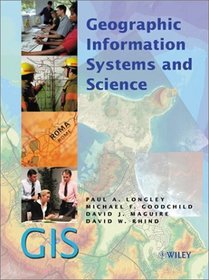Search -
Geographic Information Systems and Science
Geographic Information Systems and Science
Author:
Geographic Information Systems and Science is a landmark in the evolution of GIS. It is a book that captures and redefines the richness and diversity of GIS, in an accessible form. It presents a clearly-defined path to a world of learning about GIS, using the Internet and closely-couples reference sources. It is richly produced and illust... more »
Author:
Geographic Information Systems and Science is a landmark in the evolution of GIS. It is a book that captures and redefines the richness and diversity of GIS, in an accessible form. It presents a clearly-defined path to a world of learning about GIS, using the Internet and closely-couples reference sources. It is richly produced and illust... more »
ISBN-13: 9780471495215
ISBN-10: 0471495212
Publication Date: 7/27/2001
Pages: 472
Rating: ?
ISBN-10: 0471495212
Publication Date: 7/27/2001
Pages: 472
Rating: ?
0 stars, based on 0 rating
Publisher: John Wiley Sons
Book Type: Hardcover
Other Versions: Paperback
Members Wishing: 0
Reviews: Amazon | Write a Review
Book Type: Hardcover
Other Versions: Paperback
Members Wishing: 0
Reviews: Amazon | Write a Review
Genres:
- Science & Math >> Earth Sciences >> Geography >> Information Systems
- Engineering & Transportation >> Professional Science >> Earth Sciences >> Geography




